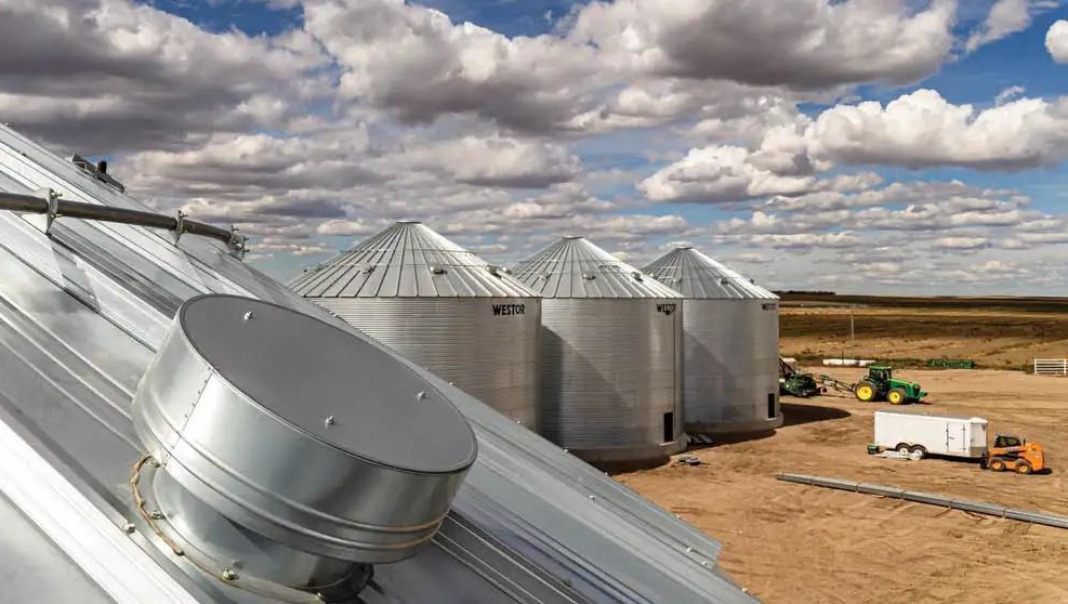Understand the ins and outs of grain payment deferral
Monday, March 24, 2025
Reference: FCC

For decades, farmers have opted to defer some or all their grain payment cheques when they deliver to their local elevator.
This strategy is often used as a tax planning tool: farmers will sell their grain but wait until sometime in the future, usually the new calendar year, to accept payment. It’s a way to manage taxable income. Grain payments can be future-dated up to 364 days from the date of being issued a cheque.
A common practice
In the 1990s, the practice was largely unused, likely because of low farming profits. Yet, as farm size and income steadily grew and farms incorporated throughout the 2000s, the practice of deferred grain payments became more common. The income cut-off number is now $500,000 - once a farm’s net income exceeds that, tax rates increase.
Chartered accountant and Saskatchewan farmer Lance Stockbrugger says there is a valid reason why farmers carry on the deferment tradition: deferring grain payments means farmers can bring in more income within a year and still benefit from a lower tax bracket. Similarly, for farm operations registered as sole proprietorships, any income not deposited into a bank account is simply moved to the next year. Less cash inflow means lower taxes.
"When farms incorporate, they can earn significantly more net income and pay it at a lower corporate tax rate," he adds.
However, Stockbrugger says there’s cause for caution when considering whether deferred payments are right for your farm operation.
Potential red flags
Farmers should consider the financial position of the grain company they deal with, Stockbrugger says.
Can the company handle all the deferred payments being cashed at once? Stockbrugger points out how, in 2003, the Saskatchewan Wheat Pool nearly went bankrupt when thousands of farmers cashed their deferred payments in early January. The Wheat Pool barely survived and had to restructure its business immediately following its brush with financial death.
“What a lot of people don't understand, is the risk of that business going bankrupt or not coming clean financially and their ability to pay that deferred grain cheque,” he says. “People will defer millions of dollars with a grain company to save tax and they have no idea what their financial position is like.”
Stockbrugger estimates about two-thirds of all grain farmers use some form of deferrals as a tax management tool. And while it can be a useful strategy, it’s still taxable income.
Timing is everything
Jeanine Courteau, head of audits at the Canadian Grain Commission, believes farmers understand the risk of deferred payments where the grain company may go bankrupt, and makes it clear it’s better for farmers to err on the side of caution.
“We want to see the producer get paid,” Courteau says. “We want to see that producer take that cheque right away, cash it and if it clears the bank, great. Then it's no longer a liability for the licensee and the producer has money in their hands.”
When the producer goes to cash their cheque, timing is critical to ensure the grain company has the funds to cover the cost of deferred payments. Under the Safeguards for Grain Farmers Program, producers are eligible for compensation within 90 days of the date of their grain delivery, or within 30 days of the date a cash purchase ticket or cheque was issued and delivered to them. The lesser of the two applies. The faster farmers get and cash their cheques, the lower the risk to their bottom line.
"But if the company suddenly fails to meet its obligations three or four months later, you're at a loss because you deferred your payment into the new year and are now outside your eligibility period," Courteau says, adding that the Canadian Grains Commission is mandated to protect producers and staying within the deferred payment parameters is important to making that happen.
“It's going to boil down to the personal risk appetite on whether or not producers are willing to accept the risk and the implications,” Courteau says.
Overall, while deferral of a grain payment can be a valuable tax management tool, it’s critical to know the financial position of a company. Otherwise, you could find yourself in a problematic situation, especially if you are outside the Canadian Grain Commission’s compensation window.
Read more
Sign up to stay connected
- News
- Property Alerts
- Save your favourite properties
- And more!
Joining Farm Marketer is free, easy and you can opt out at any time.
